Premium Only Content
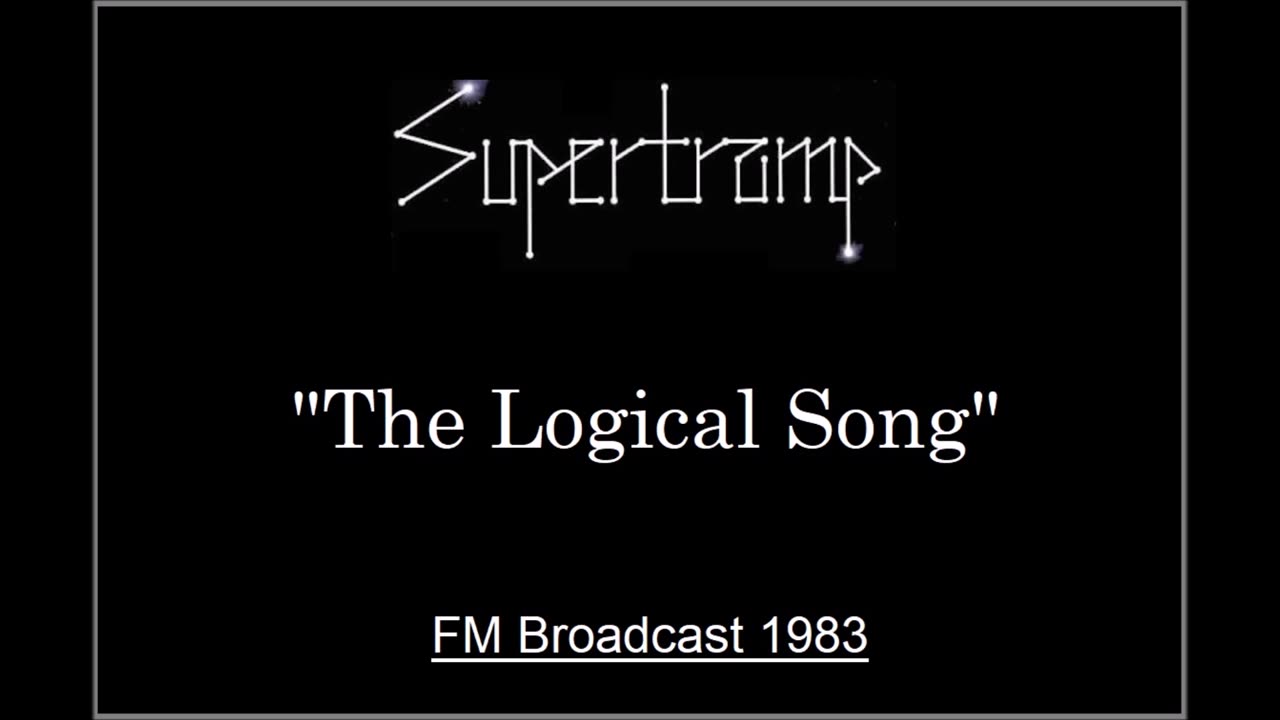
Supertramp - The Logical Song (Live in Munich, Germany 1983) FM Broadcast
Supertramp - The Logical Song (Live in Munich, Germany 1983) FM Broadcast
Rick Davies
Roger Hodgson
Dougie Thomson
Bob Siebenberg
John Helliwell
Supertramp (1970)
Indelibly Stamped (1971)
Crime of the Century (1974)
Crisis? What Crisis? (1975)
Even in the Quietest Moments... (1977)
Breakfast in America (1979)
...Famous Last Words... (1982)
Brother Where You Bound (1985)
Free as a Bird (1987)
Some Things Never Change (1997)
Slow Motion (2002)
Supertramp were an English rock band that experienced massive global success in 1979 with their seventh album Breakfast in America. Marked by the individual songwriting of founders Roger Hodgson (vocals, keyboards and guitars) and Rick Davies (vocals and keyboards), the group were distinguished for blending progressive rock and pop styles as well as for a sound that relied heavily on Wurlitzer electric piano. The group's lineup changed numerous times throughout their career, with Davies being the only constant member throughout its history. Other longtime members included bassist Dougie Thomson, drummer Bob Siebenberg and saxophonist John Helliwell.
The band were initially a prog-rock group, but starting with their third album, Crime of the Century (1974), they began moving towards a more pop-oriented sound. They reached their commercial peak with 1979's Breakfast in America, which yielded the international top 10 singles "The Logical Song", "Breakfast in America", "Goodbye Stranger", and "Take the Long Way Home". Their other top 40 hits included "Dreamer" (1974), "Give a Little Bit" (1977), and "It's Raining Again" (1982). In 1983, Hodgson left the group to pursue a solo career. Davies took over as the band's sole leader until 1988, after which they disbanded and periodically reformed in various configurations.
As of 2007, Supertramp album sales exceeded 60 million. They attained significant popularity in North America, Europe, South Africa, and Australia. Their highest sales levels were in Canada, where they had two diamond-certified (ten-times platinum) albums (Crime of the Century and Breakfast in America), and their only number 1 singles anywhere ("The Logical Song" and "Dreamer").
In 1969 Stanley "Sam" August Miesegaes, a Dutch millionaire, ceased providing financial support to a band called The Joint, as he was disappointed with them. He offered Swindon-born keyboardist Rick Davies, a former bandmate of Irish singer-songwriter Gilbert O'Sullivan, whose talent he felt had been "bogged down" by the group, an opportunity to form his own band with Miesegaes's financial backing. The band included Roger Hodgson (bass and vocals), Richard Palmer (guitars and vocals), and Keith Baker (percussion).
Davies and Hodgson had radically different backgrounds and musical inspirations: Davies was working class and fiercely devoted to blues and jazz, while Hodgson had gone straight from English private school to the music business and was fond of pop. Despite this, they hit it off during the auditions and began writing virtually all of their songs together, with Palmer as a third writer in the mix. Hodgson and Davies collaborated on the songwriting while Palmer composed the lyrics.
The group, having dubbed themselves "Daddy", after several months of rehearsal at a country house in West Hythe, Kent, flew to Munich for a series of concerts at the P. N. Club. One 10-minute performance there of "All Along the Watchtower" was filmed by Haro Senft (Daddy Portrait 1970). The rehearsals had been less than productive and their initial repertoire consisted of only four songs, two of which were covers.
In January 1970 Keith Baker left, and to avoid confusion with the similarly named Daddy Longlegs, at Palmer's suggestion, the band changed its name to "Supertramp", a moniker inspired by The Autobiography of a Super-Tramp by William Henry Davies.
In February 1970 Baker was replaced by former stage actor Robert Millar (b. 1950).
In April 1970 Supertramp, while back in Munich, returned the favor to their friend Haro Senft by contributing music to his next film, Fegefeuer (a.k.a. Purgatory), and would also agree to have tracks from their first album used in a documentary, Extremes (1971), by Tony Klinger and Michael Lytton.
Supertramp were one of the first groups to be signed to the UK branch of A&M Records and their first album, Supertramp, was released on 14 August 1970 in the UK and Canada (it would not be issued in the US until late 1977). Stylistically, the album was fairly typical of progressive rock of the era. Despite receiving a good deal of critical praise, the album did not attract a large audience.
Dave Winthrop (flute and saxophone, vocals) had first auditioned for the group in March 1970 but didn't join until July, just before the release of the first record. He performed with Supertramp at the 1970 Isle of Wight Festival on 27 August 1970.
The membership continued to change in the six months following the album's release: Palmer left the band in December 1970, followed by Millar in January 1971, who had suffered a nervous breakdown. Palmer, as Richard Palmer-James, went on to work as a lyricist for King Crimson. Palmer was replaced by former The Nice guitarist David O'List, who lasted for only one gig. A drummer from Birmingham, Dickie Thomas, was brought in during the interim until auditions brought the band Kevin Currie in February 1971.
For the next album, Indelibly Stamped, released in June 1971 in both the UK and US, Frank Farrell (bass, keyboards, backing vocals) joined, while Hodgson switched to guitar and Davies served as a second lead singer. With Palmer's departure, Hodgson and Davies wrote and composed separately for this and the band's subsequent albums. The record sold even less than their debut. In the aftermath, all members gradually quit except Hodgson and Davies, and Miesegaes withdrew his financial support in October 1972. Music Rumble Rumble Music
Supertramp Live Saxaphone Guitar Drums Keyboards Bass Piano Music Hit song
The band's switch to a more pop-oriented approach peaked with their most popular album, Breakfast in America. For the last two months of completing the album, Hodgson parked a camper outside of the studio to work diligently on mixing, with brief periods of rest in between. He remembered feeling that "it could be a big album" and that he spent "days and sometimes weeks choosing the right songs and the right order of songs so one song flowed into the next".
Released in March 1979, Breakfast in America reached number 3 in the United Kingdom and number 1 in the US and Canada. The album spawned four successful singles (more than their first five albums combined): three of Hodgson's songs, "The Logical Song" (number 1 Canada, number 6 US, number 7 United Kingdom), "Take the Long Way Home" (number 4 Canada, number 10 US, not released in United Kingdom), and "Breakfast in America" (number 9 UK, not released in the US or Canada) and Davies' "Goodbye Stranger" (number 5 in Canada, number 15 US, number 57 UK).
Rick Davies
Roger Hodgson
Dougie Thomson
Bob Siebenberg
John Helliwell
Supertramp (1970)
Indelibly Stamped (1971)
Crime of the Century (1974)
Crisis? What Crisis? (1975)
Even in the Quietest Moments... (1977)
Breakfast in America (1979)
...Famous Last Words... (1982)
Brother Where You Bound (1985)
Free as a Bird (1987)
Some Things Never Change (1997)
Slow Motion (2002)
-
 3:29
3:29
Classic Rock Live Music (High Quality Audio)
12 days agoTrans-Siberian Orchestra - King Rurik (Live at Waken 2015) Video
81 -
 LIVE
LIVE
Rallied
4 hours ago $3.62 earnedWarzone Solo Challenges
384 watching -
 57:40
57:40
MattMorseTV
4 hours ago $6.35 earned🔴Trump just SHATTERED the RECORD.🔴
29.3K65 -
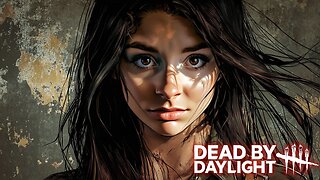 43:39
43:39
WickedVirtue
1 hour agoLate Night Spooky Plays
5.25K -
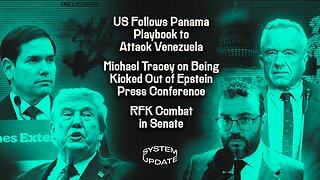 2:04:02
2:04:02
Glenn Greenwald
4 hours agoTrump and Rubio Apply Panama Regime Change Playbook to Venezuela; Michael Tracey is Kicked-Out of Epstein Press Conference; RFK Senate Hearing | SYSTEM UPDATE #508
80.8K85 -
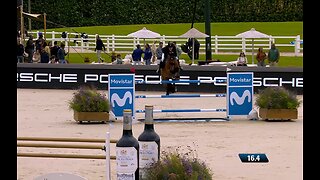 58:36
58:36
Total Horse Channel
6 hours ago2025 CSI3* A Coruña Porsche - Grand Prix
10.9K -
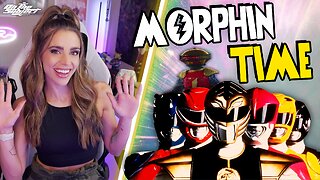
megimu32
2 hours agoOTS: Mighty Morphin Power Rangers & the 90s Movie That Defined a Generation
8.69K2 -
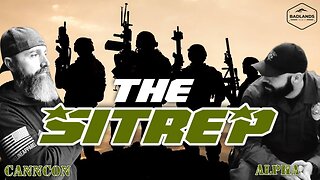
Badlands Media
17 hours agoThe SITREP Ep. 128
26.5K5 -
 LIVE
LIVE
BubbaSZN
3 hours ago🔴 LIVE - FORTNITE WITH NEW KEYBOARD
97 watching -
 2:17:29
2:17:29
Mally_Mouse
3 hours agoThrowback Thursday! Let's Play: Cuphead
15.9K1